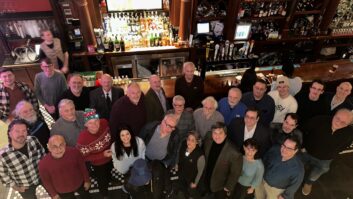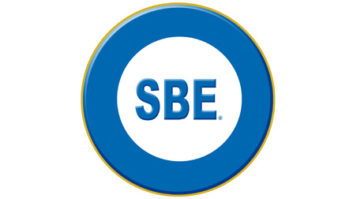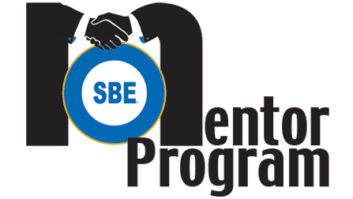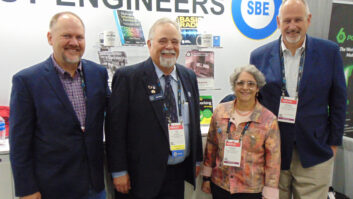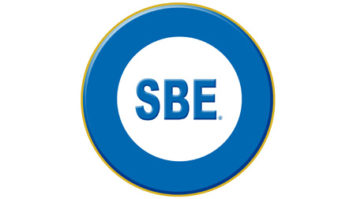Emily Reigart: Who told you about the Ennes Educational Foundation scholarships? Did you already know about the SBE, or was this your introduction?
James Copeland:I’ve been a member of SBE for about a year. I learned about the Ennes Educational Foundation Scholarship from an email from SBE.
Reigart: You�re majoring in broadcasting at Kansas State University. How did you settle on that path, and how do you think it will relate to the career you want to pursue?
Copeland:I am currently a Junior at K-State majoring in Broadcasting. I chose this track because I have always been interested in radio and television, building my own low-power radio station at the age of 14 and helping out at a local low-power TV station in my hometown of Wichita at the age of 16. K-State puts more emphasis on the journalism side of broadcasting, but I am supplementing my education through the experience I get as program director and engineer at 91.9 KSDB-FM, K-State’s student-run, 1,400 watt, noncommercial radio station. I also plan to take at least a correspondence course in broadcast engineering before or while entering the workforce.
Reigart: Do you belong to any student or professional organizations, or participate in any extracurricular activities related to broadcast engineering?
Copeland:As far as extracurricular activities, KSDB provides me the bulk of my hands-on experience. I am lucky enough to work alongside KSDB’s faculty adviser and Chief Operator, Vern Wirka, who had a career in broadcast engineering before entering academia. In addition to KSDB, I learn a lot from my position as president of the K-State Amateur Radio Club, of which Vern is also Adviser.
Reigart: You’re a ham radio operator. Who introduced you to this hobby, and at what age? Also, do you have another radio-related hobbies?
Copeland:I learn a lot about electronics through the hobby of amateur radio. I first got my license at the age of 13. I was lucky to grow up in a whole family of hams, from my mom and dad to grandfather and aunt, uncle, and great aunt and great uncle. My father was most helpful in teaching me about the hobby when I was first starting. Through getting my ticket, I think I reinvigorated his interest in the hobby as well, as he is now working on restoration projects and getting back on the air. Inside the hobby, my favorite part is restoring and operating vintage tube rigs – mainly Collins and Heathkits. They represent a different, more simple era, and by getting these rigs back on the air, I can kind of recreate an experience that young men of my age experienced 50 years ago.
In addition to ham radio, I enjoy shortwave listening. Most people don’t realize there’s a whole other side to broadcast radio than is on their standard dial. There are all sorts of mysterious signals – even spy number stations – that are on the air every night. Plus, a lot of people around the world still depend on shortwave radio for news, music and information. In addition to my radio-related hobbies, I also collect and repair typewriters and practice darkroom photography.
Reigart: Any advice for other students who might be interested in radio or TV broadcasting?
Copeland:Some advice I would give to someone interested in radio or TV broadcasting would be to get experience as soon as you possibly can. I was essentially able to walk into KCTU-TV in Wichita and start helping out at a young age. That was lucky, and not everyone will have that opportunity, sadly because of bureaucracy surrounding most commercially-owned stations. Therefore, I would suggest getting involved at a family-owned, local operation if possible. That way, you’ll get to experience all parts of the broadcasting business and find out what parts you do and don’t like. Plus that’s the way broadcasting is supposed to be, in my opinion – local and family-owned and run.
Reigart: How are you spending your summer?
Copeland:This summer, I stayed in Manhattan and started my current position of program director at KSDB. I also had the opportunity to start designing and building our new satellite broadcast studio in the student union. We hope to have it completed by September.�
Reigart: What�s your favorite part of working in this field?
Copeland:I would say that my favorite part of working in this field is becoming part of the community as a broadcaster. Sure, I love the engineering challenges, but I also like being involved in other aspects of the station, like reading news and hosting talk shows. It’s great being on a remote covering a community event and seeing people pointing to our logo and waving to us at our table. Knowing you’re making a difference in the community is the real reward in broadcasting. For me, it’s not about the money or the recognition – it’s about giving back to the community.
After graduating, my dream is to work at a small, family-owned radio station doing engineering and announcing. I’d just love it if that dream station used mostly vintage equipment – I know there are a few still out there – that would really be icing on the cake!
�





